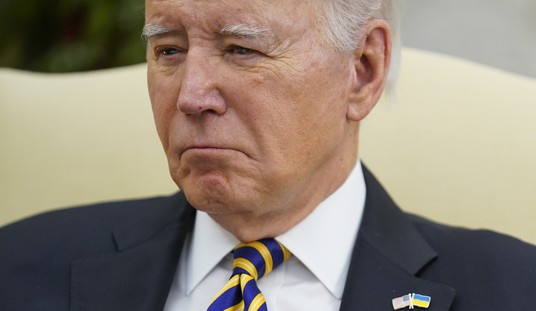Last week, it was Thomas Friedman, Luddite:
Here is a typical evening at a major cable TV network: arrive at Washington studio and be asked to sign in by a contract security guard. Be met by either a young employee who appears to still be in college or an older person who seems to have hung on with tenure. Have your nose powdered by that person. Have your microphone attached by that person. Be positioned in the studio chair by that person, and then look directly into a robotic camera being manipulated by someone in a control room in New York and speak to whoever the host is wherever he or she is. That’s it: one employee, a robot and you.
Think of how many jobs — makeup artist, receptionist, camera person, producer-director — have been collapsed into one.
Today, it’s Thomas Friedman, techno-futurist visionary, praising the man who pioneered much of the technology Friedman was moaning about just last week:
THE melancholy over Steve Jobs’s passing is not just about the loss of the inventor of so many products we enjoy. It is also about the loss of someone who personified so many of the leadership traits we know are missing from our national politics. Those traits jump out of every Jobs obituary: He was someone who did not read the polls but changed the polls by giving people what he was certain they wanted and needed before they knew it; he was someone who was ready to pursue his vision in the face of long odds over multiple years; and, most of all, he was someone who earned the respect of his colleagues, not by going easy on them but by constantly pushing them out of their comfort zones and, in the process, inspiring ordinary people to do extraordinary things.
There isn’t a single national politician today whom you would describe by those attributes, which is why the fake Jobs obituary published in The Onion, the satirical newspaper, struck such a nerve. It began by saying: “Steve Jobs, the visionary co-founder of Apple Computers” — and the only American in the country who had any clue what he was doing — “died Wednesday at the age of 56.” It went on to quote President Obama as saying that Jobs “will be remembered both for the life-changing products he created and for the fact that he was able to sit down, think clearly, and execute his ideas — attributes he shared with no other U.S. citizen. ‘This is a dark time for our country, because the reality is none of the 300 million or so Americans who remain can actually get anything done or make things happen.’ ”
Ouch! Fortunately, the last part is not true. There are still thousands of U.S. innovators who embody Steve Jobs’s most important attribute: They didn’t get the word. They didn’t get the word that we’re down and out. They didn’t get the word that we’re in a recession. They didn’t get the word that Germany is going to eat our breakfast and that China is going to eat our lunch, so they just go out and invent stuff and make stuff and export stuff. Like Jobs, they just didn’t get the word — and thank God.
At one point in his latest column, Friedman writes:
We cannot bail or tax-cut our way to prosperity. We can only, as Jobs understood, invent our way there. That is why America needs to be for the world in the 21st century what Cape Canaveral was to America in the 1960s: the place where everyone everywhere should want to come to start up and make something — something that makes people’s lives more productive, healthy, comfortable, entertained, educated or secure.
But whatever happened to the Cape Canaveral of the 1960s? In Charles Murray and Catherine Bly Cox’s brilliant 1989 book Apollo, the authors sum up the insular world of NASA in 1968, maintaining a breakneck pace to fulfill Kennedy’s vision of landing a man on the moon before the decade was out — and knowing that the clock was ticking down fast:
Within the world of Apollo, the outside world looked completely different. “I missed the entire Vietnam War,” said one, typical of many. “I watched no television, read no newspapers, came to work at six in the morning and worked until nightfall, six or seven days a week for years.”
The people of Apollo were barely aware that the Vietnam War was going on, barely aware that this was a Presidential election year, barely aware that there was such a thing as a War on Poverty or L.S.D. or Sgt. Pepper or race riots.
At some point in the last 20 years or so, NASA decided to embrace the PC ethos of Friedman and the New York Times, becoming more obsessed with global warming, multiculturalism, and feminism than manned space flight. A legendary Freudian slip by Howell Raines, the Times’ disastrous former editor was that “This campaign has made our staff better and, more importantly, more diverse.” Similarly, these days, NASA has more important things on its mind than sending men humans into space.
Victor Davis Hanson posits “The Coming Post-Obama Renaissance.” But in the meantime, why would anyone want to take Friedman’s advice and come to America and to start up and make something? Why risk spending millions to build a business or acquire an existing one, when the feds could kick your door in at any moment? Or legislate it out of business at any moment? Why risk starting a business only to have a major newspaper praise those who are protesting it?
To paraphrase H.L. Mencken, the Gray Lady knows what the common people want — and the Timesmen have gone out of their way to ensure that they’ll get it — good and hard.









Join the conversation as a VIP Member